| |
| |
| |
| Presented By Global X ETFs |
| |
| Axios World |
| By Dave Lawler ·Mar 17, 2022 |
| Welcome back to Axios World. Thanks for being a reader. - Tonight's edition (1,973 words, 7.5-minutes) takes off from India.
- Thanks to several of you who offered reading recommendations after I mentioned I was starting Stephen Kotkin's multi-part biography of Stalin. If I ever finish it, I look forward to exploring your suggestions.
New arrival? Subscribe |
| |
| |
| 1 big thing: India undermines Russia isolation push |
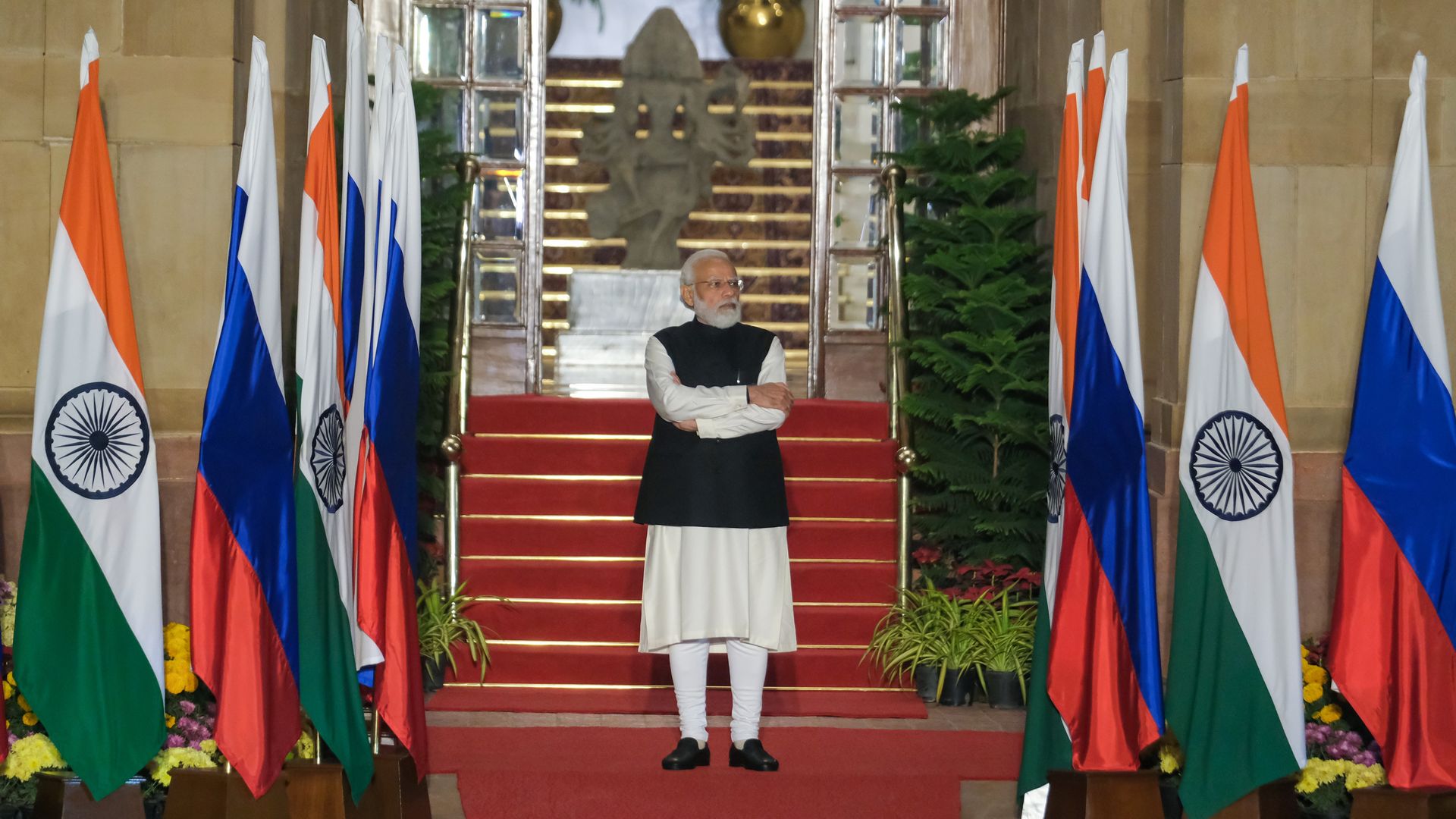 |
|
| Indian Prime Minister Narendra Modi waits for a visiting Russian President Vladimir Putin last December. Photo: T. Narayan/Bloomberg via Getty Images |
| |
| India's refusal to condemn the invasion of Ukraine and efforts to protect trade with Russia mean one of Washington's most valued strategic partners is actively undercutting its efforts to isolate Moscow. The big picture: Vladimir Putin's invasion has become a stress test for America's global partnerships. America's treaty allies are all onside, including those outside NATO such as Japan and South Korea. India, for reasons of history and geopolitical pragmatism, is very much not. Driving the news: India abstained on a series of UN votes condemning the invasion. One such resolution was backed by 141 countries, though a Russian diplomat contended that — with China and India both abstaining — the critics represented less than half of the global population. - While the U.S. and EU have led a global push to isolate Russia economically, India has been buying up more Russian energy at a discount.
- Now, per the FT, India's central bank is discussing a rupee-ruble trade plan with Moscow to ensure it can continue to buy Russian goods, potentially weakening the effects of Western sanctions.
What they're saying: U.S. officials say they understand India's delicate position vis-a-vis Russia, though White House Press Secretary Jen Psaki called on India's leaders to "think about where you want to stand when history books are written." - The State Department dispatched and then quickly recalled a cable telling diplomats to warn counterparts from India and the UAE that their abstentions at the UN put them "in Russia's camp," Axios Hans Nichols reported earlier this month.
- The British trade secretary said today that the U.K. is "very disappointed" by India's position and hopes it will change. That's not looking likely.
Between the lines: India's position is informed by decades of cooperation with Russia and the then-Soviet Union, including its disputes with China and Pakistan. - Additionally, 70% of India's military arsenal is Russian-made, and New Delhi is counting on Moscow for additional systems and spare parts.
- Buying Russian oil and weaponry "is India's way of trying to ensure that Russia keeps India's interests in mind," and doesn't shift toward Pakistan or become entirely beholden to China, says Aparna Pande of the Hudson Institute. That also helps explain the post-invasion silence from New Delhi.
But calling for peace without picking sides is also India's default approach to global crises, she says. - India doesn't want other powers to intervene over Kashmir, and is reluctant to use sanctions because it doesn't want to face sanctions itself.
- "At its core, Indian foreign policy is very realpolitik," Pande says. For example, "India is a democracy but India doesn't do democracy promotion."
- India coordinates most closely with the U.S. than any other country, Pande adds. But rather than seeking to bind itself to Washington through a formal alliance, its focus is on balancing relations with multiple global powers, including Russia.
Zoom out: India isn't alone in hedging its bets over Ukraine. - Saudi Arabia has been snubbing the Biden administration as it seeks to increase oil production.
- Israel has condemned the invasion, but is also treading lightly to protect its security coordination with Russia in Syria.
- South African President Cyril Ramaphosa, defending his own neutral stance, went so far today as to blame NATO for the "instability" that led to war.
What to watch: Successive U.S. administrations have made India a centerpiece of their strategies to counter China. - But Pande says if China claims territory in the South China Sea or even invades Taiwan, India's response will be much the same as with Ukraine.
|
    |
| |
| |
| 2. State of the diplomacy I: Hints of progress |
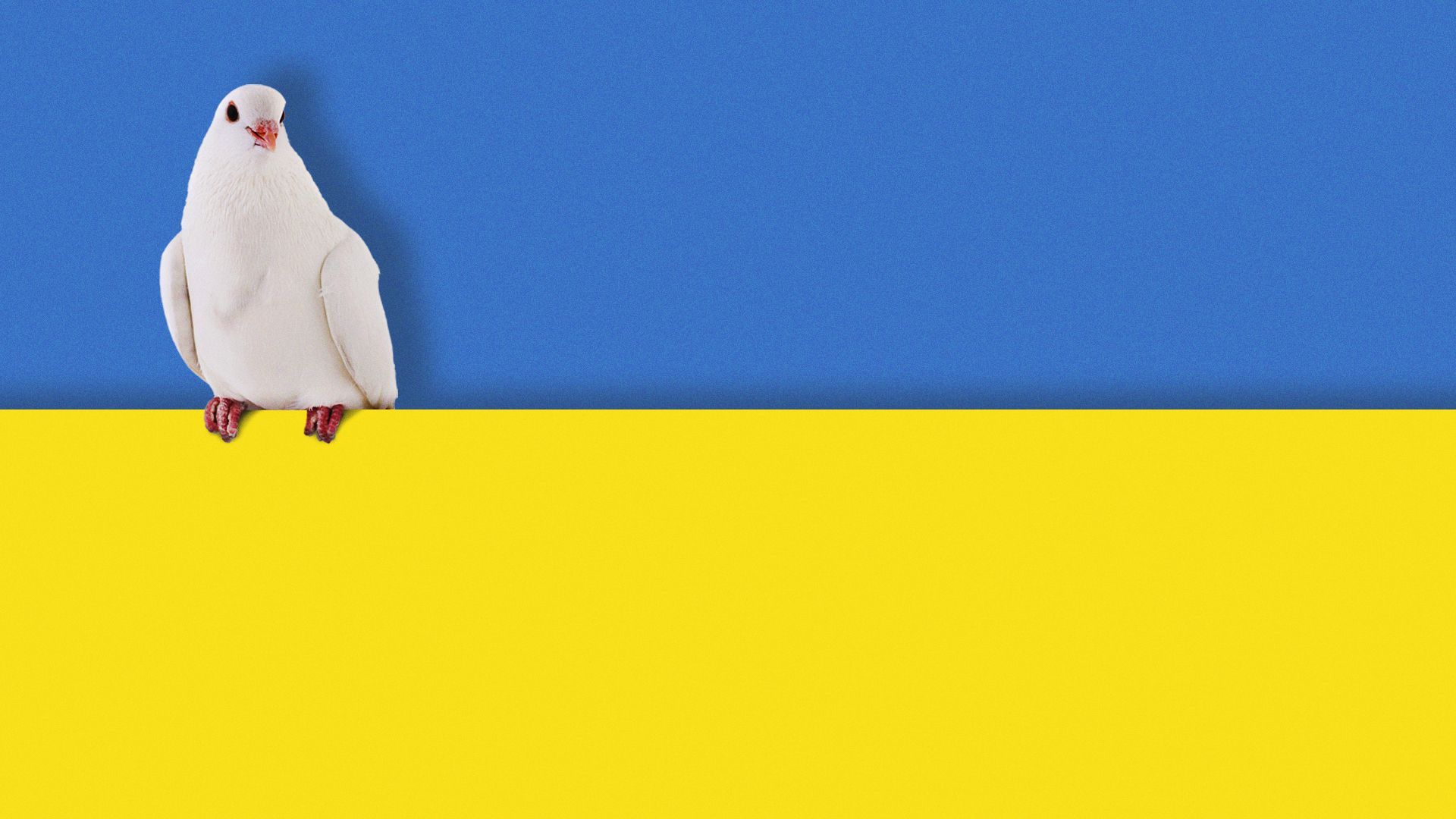 |
|
| Illustration: Maura Losch/Axios |
| |
| The outlines of a potential deal to end the war in Ukraine are coming into focus, but sources on the Ukrainian side tell Axios they fear Moscow's new-found enthusiasm for diplomacy is a ruse. Why it matters: Kyiv has gained unexpected leverage by withstanding the Russian advance for three weeks, though the humanitarian crisis is deepening daily as Russia shells major cities. - President Volodymyr Zelensky has hinted at an off-ramp by acknowledging that Ukraine will not be invited into NATO, but Ukrainian, U.S., and European officials doubt Russian President Vladimir Putin is prepared to take it.
Driving the news: After Zelensky said Ukraine wouldn't be invited into NATO, Kremlin spokesman Dmitry Peskov said Wednesday that Ukraine's post-war "neutrality" could be based on the Austrian or Swedish models. Both are non-NATO members in the EU and firmly anchored in the West. - The FT then reported Russia and Ukraine had discussed a "15-point" draft peace plan during Monday's negotiations, and that significant progress had been made toward a deal.
- It would include Ukraine ruling out joining alliances or hosting foreign troops but receiving security guarantees from countries such as the U.S., U.K., and Turkey.
- No agreement has been reached on Russia's other core demands, including that Ukraine recognizes Russia's sovereignty in Crimea and the independence of the eastern "republics" of Donetsk and Luhansk.
- But at least in public, Russian officials have dropped their calls for regime change and "demilitarization," and Peskov's implication that Ukraine could join the EU was particularly striking.
The latest: Peace talks took place today for a fourth consecutive day, but Peskov lamented that while "our delegation is putting in colossal effort ... we don't see such zeal from the Ukrainian side." |
    |
| |
| |
| 3. State of the diplomacy II: Fears of a head fake |
 An adviser to Zelensky told Axios he believes the Russians aren't yet serious about reaching a deal, though one could be reached in the next few weeks if the West and Ukrainian forces continue to pile pressure on Putin. - Maryan Zablotsky, a member of parliament from Zelensky's party, told Axios the Russian side had started commenting publicly on details of the negotiations despite an agreement not to do so.
- He said that "damages the process and led us to some further doubts about how realistic it is."
- Zablotsky added, "The question is whether [Putin] is really serious. The negotiators who are taking part in the negotiations seem like they are more serious than they were before. However, whether this is a ploy is still to be seen."
The U.S. view is similar. While the White House had avoided high-level dialogue with Russia on the grounds that Moscow wasn't genuinely interested in diplomacy, national security adviser Jake Sullivan did speak to his Russian counterpart on Wednesday. - However, the official White House statement on the call noted that "if Russia is serious about diplomacy, then Moscow should stop attacking Ukrainian cities and towns."
- U.S. officials continue to doubt Putin wants peace, as President Biden made clear Wednesday when he announced an additional $800 million in military aid. He also warned "a long and difficult battle" was likely.
- Two European diplomats briefed on talks between Putin and his German and French counterparts also said they continue to expect further escalation from Russia for the time being.
On the Russian side, Foreign Minister Sergei Lavrov has said that the text of a potential deal is "close to being agreed." - But Putin himself reiterated his baseless claims that Zelensky's "pro-Nazi" government was committing genocide and seeking nuclear weapons.
- Putin also said his "special military operation" was proceeding "successfully" and would be "solved" as planned.
What to watch: Military analysts have warned that Putin might soon seek a ceasefire to resupply his troops — without any intention of ending the war altogether. More headlines: |
    |
| |
| |
| A message from Global X ETFs |
| Unlock a new investment opportunity |
| |
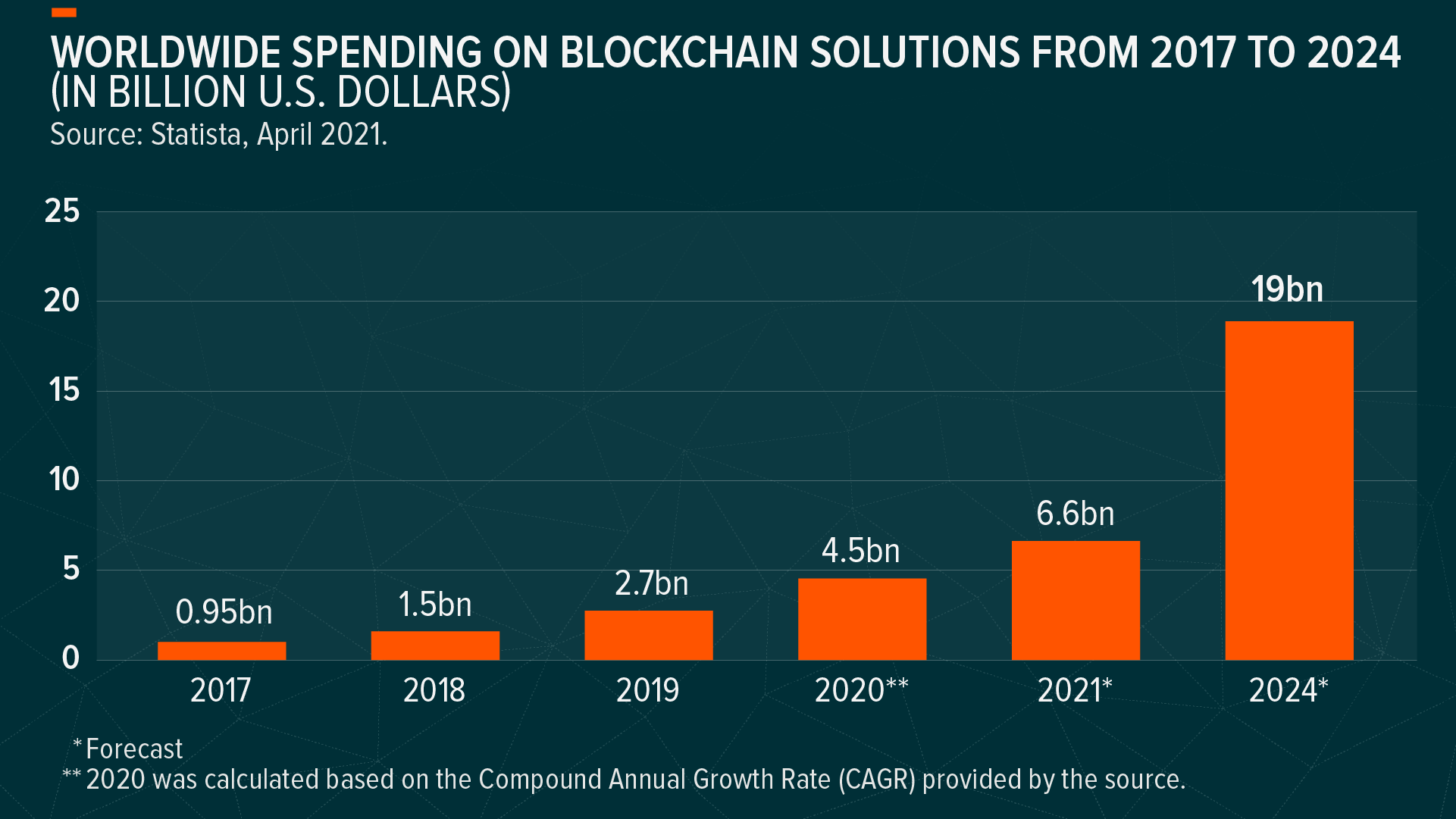 |
| |
| While famously associated with cryptocurrencies and other digital assets, blockchain's reach now extends to a growing number of uses. The Global X Blockchain ETF (BKCH) is designed to provide investors access to companies at the leading edge of this technology. Explore BKCH. |
| |
| |
| Bonus: Where in the World |
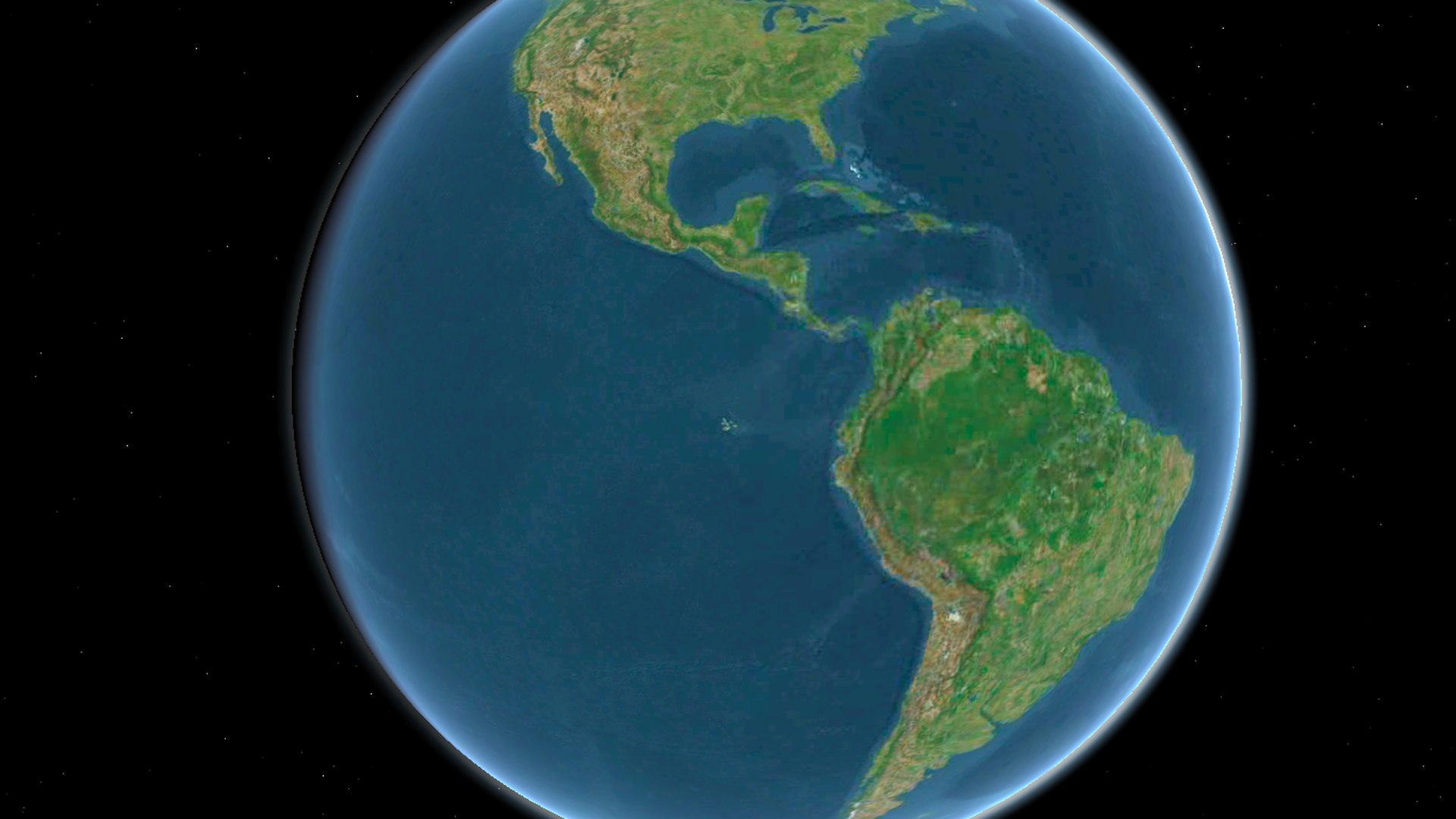 |
|
| Screengrab via Apple Maps |
| |
| Today, we're taking a land journey from Patagonia to the Arctic. We want to minimize border crossings, so we'll stop in a total of 11 countries. Here are some signposts to help you pick your route. Since you can start in one of two countries, there are two options for 1 and 2. - _1_->_2_->_3_-> Panama->_5_->_6_->_7_->_8_->_9_->_10_->Canada
Can you map out the journey? Scroll to the bottom for answers. |
    |
| |
| |
| 4. UN leaders urge attention on other global crises |
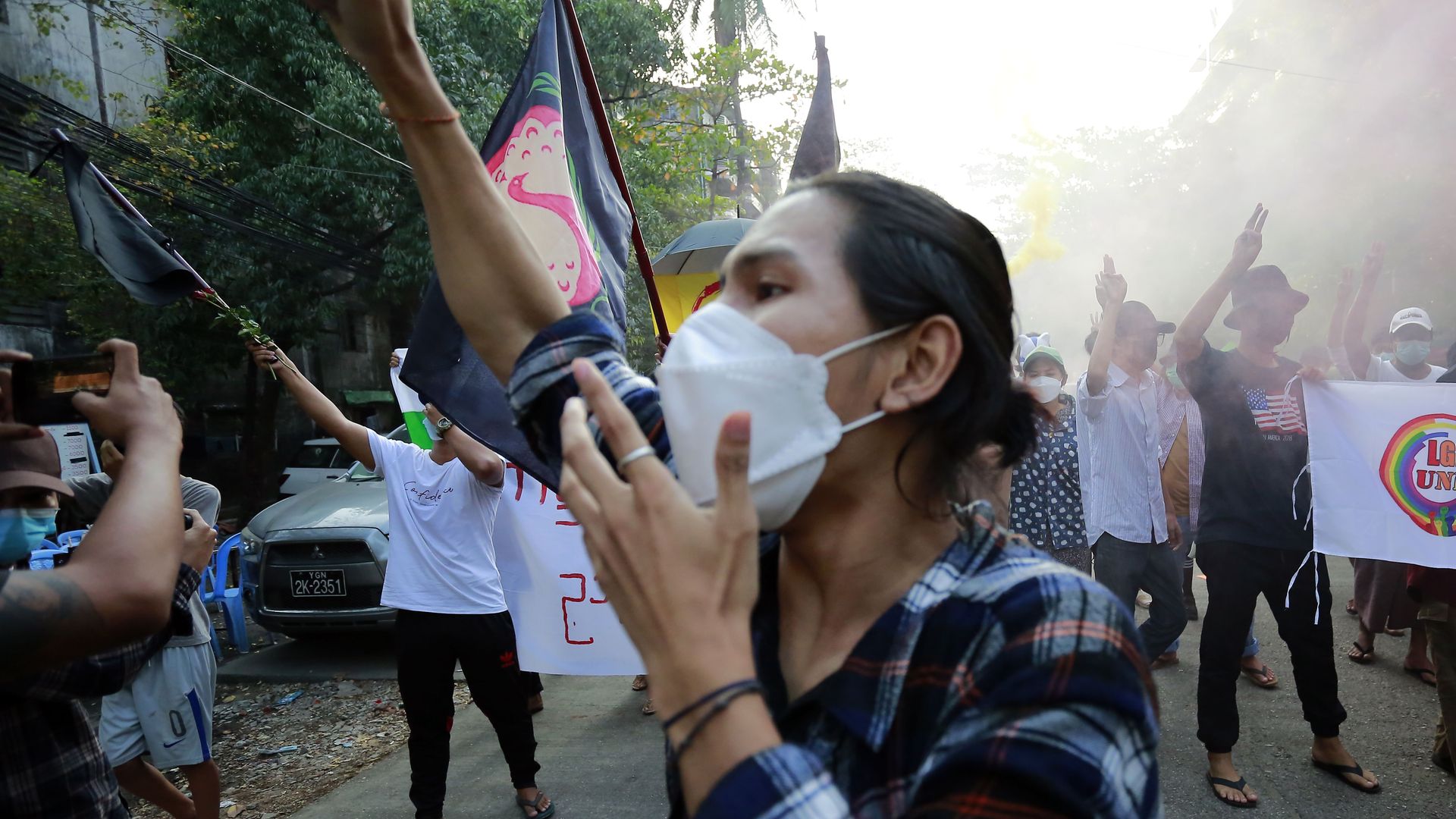 |
|
| Demonstrators protest the military coup in Yangon, Myanmar, on March 3. Photo: Myat Thu Kyaw/NurPhoto via Getty Images |
| |
| As countries quickly mobilize to respond to the deepening crisis in Ukraine, UN leaders are urging them not to forget about the ongoing crises in places such as Afghanistan, Ethiopia, Myanmar, and Yemen, Axios' Laurin-Whitney Gottbrath writes. What's happening: Yemen: The UN yesterday raised less than a third of the $4.27 billion requested for relief efforts in what has been described as the world's worst humanitarian crisis. - "We have no choice but to take food from the hungry to feed the starving," said World Food Programme executive director David Beasley said.
Afghanistan: More than half of the population experience acute hunger, according to the UN. - UNHCR chief Filippo Grandi traveled to Afghanistan this week to try to keep international attention on the country.
Ethiopia: An estimated 6 million people in Tigray have been "sealed off from the outside world" for almost 500 days due to a blockade by Ethiopian and Eritrean forces, WHO director-general Tedros Adhanom Ghebreyesus said yesterday. - No food aid has been delivered since mid-December. "There is nowhere on Earth where the health of millions of people is more under threat," Ghebreyesus said.
Myanmar: At least 440,000 people have been displaced in Myanmar since the February 2021 military coup, and the UN estimates that 14 million need urgent humanitarian assistance. Go deeper |
    |
| |
| |
| 5. Iran deal: U.S. weighs taking Revolutionary Guards off blacklist |
 |
|
| Supreme Leader Ali Khamenei meets with leaders of the IRGC last January. Photo: Handout via Getty Images |
| |
| The Biden administration is considering removing Iran's Islamic Revolutionary Guard Corps from a terror blacklist in return for a public commitment from Iran of de-escalation in the region, Axios' Barak Ravid scooped. Why it matters: An agreement to restore the 2015 nuclear deal is nearly complete, but Iran's demand that President Biden reverse Donald Trump's decision to designate the IRGC as a Foreign Terrorist Organization is a key remaining sticking point. - The IRGC is not only Iran's most feared military branch, it's also a powerful political and economic player. The terror designation means that even if Biden lifts nuclear sanctions to return to compliance with the deal, criminal penalties could still be imposed on anyone doing business with individuals or businesses connected to the IRGC.
- But removing the designation is a political hot potato for Biden.
- One idea being discussed by the Biden administration would be a public announcement that the U.S. reserves the right to redesignate the IRGC if it determines that Iran did not follow through on its pledge to de-escalate in the region.
Meanwhile, Iran has freed two British nationals in another sign a deal could be close. Go deeper |
    |
| |
| |
| 6. Global news roundup |
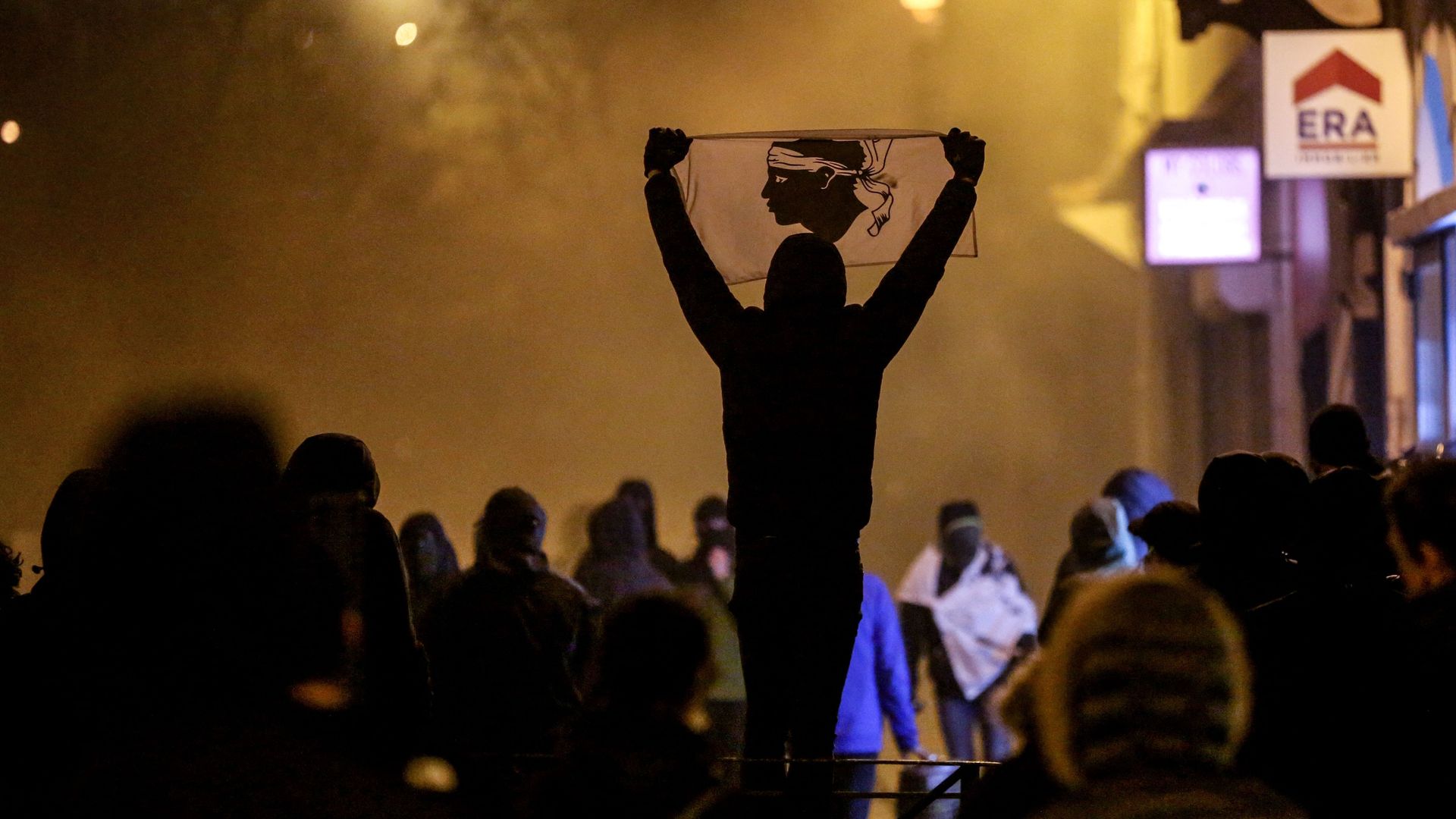 |
|
| Protests in Corsica. Photo: Pascal Pochard-Casabianca/AFP via Getty Images |
| |
| 1. Former Honduras President Juan Orlando Hernández can be extradited to the U.S. to face drug trafficking and weapons charges, a judge ruled on Wednesday night. 2. The French government says it's willing to discuss autonomy for the island of Corsica —the birthplace of Napoleon — following several days of violent protests that began after a well-known Corsican nationalist was attacked in prison. 3. Uzbekistan Foreign Minister Abdulaziz Kamilov today defended the "independence, sovereignty and territorial integrity of Ukraine" and condemned military "aggression" there in an unexpectedly defiant statement from a Central Asia country with very close ties to Russia. 4. A judge in Russia extended U.S. basketball star Brittney Griner's detention for another two months. Customs officials claimed to have found cannabis oil in her luggage, but the circumstances around her arrest are very murky. |
    |
| |
| |
| 7. Stories we're watching |
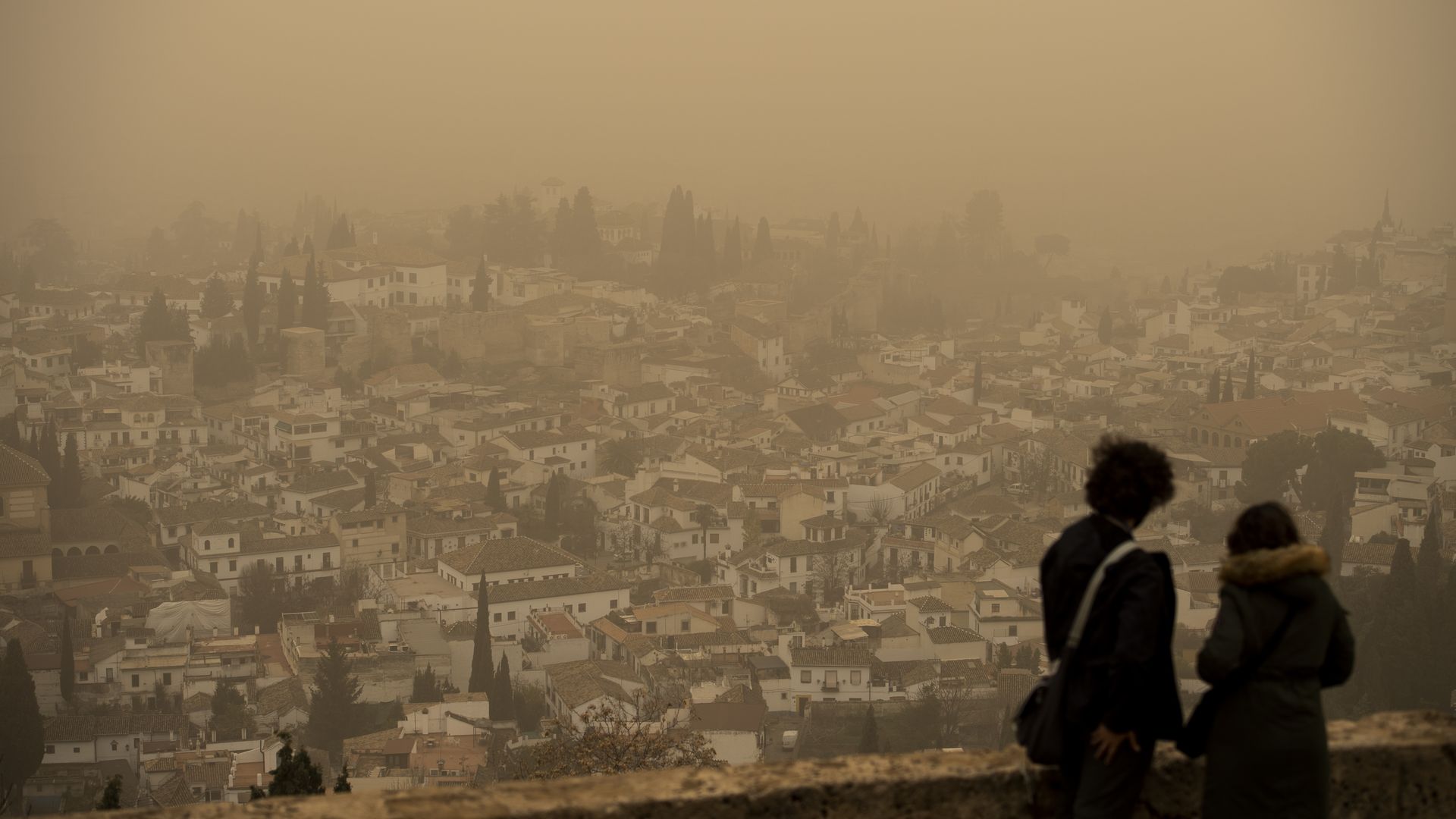 |
|
| Dust blown from the Sahara obscures a view of Grenada, one of Europe's loveliest cities. Photo: Carlos Gil Andreu/Getty Images |
| |
- Blinken planning trip to Saudi Arabia and UAE
- Magnitude 7.3 earthquake hits northern Japan
- Europe's skepticism toward China grows
- Eighth journalist killed in Mexico this year
- U.S. expects big immigration spike if Covid policies end
- In photos: 3 weeks of war in Ukraine
- Coming and going: Bolshoi ballerina and state TV hosts quit; Zelensky show back on Netflix
Quoted: "What we are currently experiencing is the brain death of NATO." — French President Emmanuel Macron to the Economist in 2019"Russia has just sent an electroshock." — Macron, today revising his opinion |
    |
| |
| |
| A message from Global X ETFs |
| Unlock a new investment opportunity |
| |
 |
| |
| While famously associated with cryptocurrencies and other digital assets, blockchain's reach now extends to a growing number of uses. The Global X Blockchain ETF (BKCH) is designed to provide investors access to companies at the leading edge of this technology. Explore BKCH. |
| |
| Answers: 1/2=Chile-->Peru OR Argentina-->Brazil. 3. Colombia. 4. Panama. 5. Costa Rica. 6. Nicaragua. 7. Honduras. 8. Guatemala. 9. Mexico. 10. U.S. 11. Canada |
 | It's called Smart Brevity®. Over 200 orgs use it — in a tool called Axios HQ — to drive productivity with clearer workplace communications. | | |
Post a Comment
0Comments